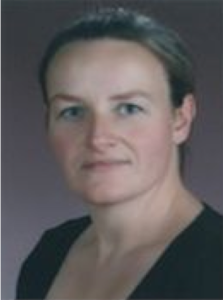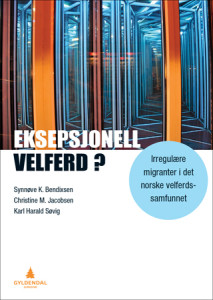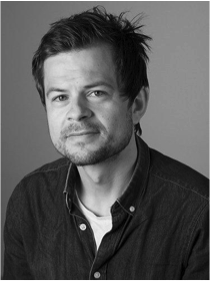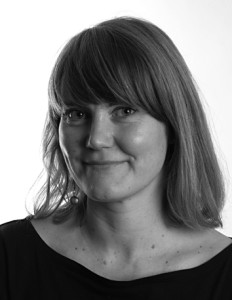IMER Bergen 15 year anniversary conference and phd course
En overraskende forskningsferd Yngve Lithman har opplevd både trams, trassel og larmerier av alle slag som leder for IMER gjennom 12 år. Men mest av alt har det vært en intellektuelt overraskende reise. I dag fyller migrasjonssatsingen 15 år. (Intervju med Yngve G. Lithaman i anledning IMER Bergens 15 års jubileum)
De nye jødene Elisabeth Eide tror ikke på at historien gjentar seg selv, men ser likevel mange likhetstrekk mellom 1940-tallet og i dag. Forskjellen er at muslimene er de nye jødene. (Intervju med Elisabeth Eide i anledning IMER Bergens jubileumskonferanse)
Misplaced women On Tuesday November 8 from 13:40 I performed my “Misplaced Women?” at arrivals & departures terminal of Bergen international airport. In approximately 30 minutes time I took out the entire contents of my two suitcases, out of my handbag as well as out of my cosmetics and make-up bags. (Read more and see the photos from the performances in Bergen previous to Tanja Ostojic’s performance lecture at Gallery 3,14)
***********************
International migration and attendant processes of globalization, both as social phenomena and in efforts at theorization, have become especially critical for the development of social theory and analysis, notably by challenging some of the fundamental questions of the social sciences. If one wishes, as Georg Simmel did, to answer the question “How is society possible?”, one cannot take for granted that the relevant object is defined within the parameters of the nationstate, nor by those of ´ethnic groups´ or ´cultures´.
In a recent evaluation report on Norwegian sociology research, it is stated that ´[t]he key question to be explored by sociology today is not, perhaps, how society is possible, but rather how to study social processes and changes at local, national and global levels (Sociological research in Norway: An evaluation, p. 17). Across the social science disciplines, it now seems impossible to imagine place, society and culture without the mobilities of people, goods and information – thus recasting questions exploring e.g. social stratification, scale, space, media and politics.
In its 15 years of existence, IMER Bergen has directed its collaborative efforts towards examining, but also reframing the fundamental questions of the social sciences, as variously defined within particular disciplines. To celebrate this 15th anniversary, we want to put to the forth the contributions that IMER research in Bergen, but also in the wider international scholarly community, has made to the study of society in general, processes of social change and new social formations in particular.
A combination of international and local scholars will in the course of a two day seminar, discuss how IMER researchers deal with issues such as migration, globalization and transnational movements – how they examine ‘culture’, ´politics´, ´space´, ´gender´, ´media´, ´government´ and ´law´ – through the prism of International Migration and Ethnic Relations.
A commitment to provide a strong and creative scholarly environment for students and research recruits has been one of IMER Bergen´s main vocations. In this spirit, the 15th anniversary comprises a PhD course for candidates within the humanities and social sciences. In addition to the main conference, the course component of the conference will be constituted by workshop sessions with essay presentations.
Programme
Wednesday 9 November Anniversary conference. OPEN LECTURE:
Venue: ‘Egget’, Parkveien 1: 10.15-10.30: Official opening with Dean of the Faculty of Social Sciences, Knut Helland, and Director of the Uni Rokkan Centre, Jan Erik Askildsen. 10.30-12.00: • DAVID LEY (University of British Columbia): “Masters of Space, or Prisoners of Space? Locating the Neoliberal Migrant” • YNGVE G. LITHMAN (University of Bergen): ”De-Etatizing Social Science?: “Verstehen” and “Erklärung” in a (somewhat) Flatter Earth”
Chair: Edvard Hviding (Department of Social Anthropology, University of Bergen)
12.15-13.15: Lunch.
Venue: Auditorium, Bergen Resource Centre, Jekteviksbakken 31: 13.15-14.45: • HAKAN G. SICAKKAN (University of Bergen): “The Politics of Diversity, the European Publics, and the European Public Sphere”
• METTE ANDERSSON (University of Bergen): “‘Reflexive Transnationalization’ among Politically Engaged Minority Youth” [Read interview with Mette Andersson in På Høyden 7 November]
Chair: Susanne Bygnes (Department of Sociology, University of Bergen)
14.45-15.00: Coffee break.
15.00-16.30:
• RANDI GRESSGÅRD (University of Bergen): “Equality Equals Hierarchy – the Holistic Foundation of Liberal Ideology and Integration Policy” • BRUCE KAPFERER (University of Bergen): ”The Tamil Crisis: State, War and Peace in Sri Lanka and Shifts in Global Power”
Chair: Kathinka Frøystad (Department of Social Anthropology, University of Bergen)
Thursday 10 November Anniversary Conference. Venue: Auditorium, Bergen Resource Centre, Jekteviksbakken 31:
10.15-11.45:
• CHRISTINE M. JACOBSEN (Uni Research and University of Bergen): “The (not so) New Islamic Presence in Western Europe: Secular Governance and Religious Freedom in a Globalized Era” • ANDRÉ ITEANU (Centre National de la Recherche Scientifique (C.N.R.S.), Paris): “The Free Noble and the Poor Beggar. What does the Veil Controversy Reveal about French Ideology”
Chair: Synnøve Bendixsen (IMER Bergen and Uni Rokkan Centre)
12.00-13.00: Lunch.
13.00-14.30: • SUSI MERET (University of Aalborg): “Exploring the Social, Political and Cultural Challenges of Right Wing Populism in the Nordic Countries: Comparative Approaches, Developments and Perspectives”
• ELISABETH EIDE (Oslo University College and University of Bergen): “Media Discourses, Migration and Post-22.7-Debates; a Critical Inquiry”
Chair: Elisabeth Ivarsflaten (Department of Comparative Politics, University of Bergen)
14.30-14.45: Coffee break.
14.45-16.30: PANEL DISCUSSION: “The Future of IMER Research”
David Ley (University of British Columbia) Susi Meret (University of Aalborg) Hilde Lidén (Nordic Migration Research and Institute for Social Research, Oslo) Yngve G. Lithman (IMER Bergen and University of Bergen) Mette Andersson (IMER Bergen and University of Bergen) Hakan G. Sicakkan (IMER Bergen and University of Bergen)
Chair: Yngve G. Lithman (IMER Bergen and Department of Sociology, University of Bergen)
* * *
19:00: Performance lecture by artist TANJA OSTOJIC: “Crossing Borders“. Venue: Galleri 3,14. Vågsallmenningen 12. Free entrance. Refreshments will be served. In addition, her project “Misplaced Women? Marking the City” is a series of performances, interventions and delegated performances which will take place in the public space of Bergen previous to the lecture. In collaboration with the International Contemporary Art Foundation 3,14. Friday 11 November PhD course. PhD candidates, please see the Course Site for more information.
Venue: Seminar room, Uni Rokkan Centre, Nygårdsgt. 5, 6th floor. 10:15-16:30: Essay presentations. Conference fee: Nok 500,- for two days (includes lunch) Students: Nok 300,- REGISTRATION to Hanna Skartveit. Still possible to register!
The Conference is organised in collaboration with Uni Rokkan Centre, Dept. of Social Anthropology, Dept. of Sociology, Dept. of Geography, Dept. of Comparative Politics and SKOK, University of Bergen.
Halvar A. Kjærre: “Politics and Mobilities”
Tarje I. Wanvik: “Migration and Social Inequalities”
Halvar A. Kjærre (Department of Social Anthropology, UiB) and Tarje I. Wanvik (Department of Geography, UiB) have recently been recruited to the IMER Bergen research unit as PhD candidates.
In this seminar they will present their PhD projects. After the presentation there will also be a presentation of IMERS new webpages.
IMER Abroad: PROVIR Seminar – Precarious migrants and access to welfare: Between policy, law and practice
This workshop will discuss the legal and experienced dilemmas found in the encounter between migrants living in a legally precarious situation and the welfare state in which they reside. Participants will present ongoing empirically based research on migrants’ access to welfare in policy, law and practice in various European countries. They will also discuss the particular position of youth and children in vulnerable situations. The program is available here.
BSRS 2014 Governance to meet Global Development Challenges
Welcome to BSRS2014!
The theme for BSRS2014 is Governance to meet Global Development Challenges. The event will take place from June 23rd to July 4th 2014 at the University of Bergen. Please find information about the courses, application form and other activities at the menu to your right side.
One of the courses is and IMER/SKOK PhD course.
Read more at:
http://www.uib.no/rs/bsrs/programme/bsrs-2014-governance-to-meet-global-development-challenges
 How might we think about race as a paradoxically fungible yet persistent feature of human history? This mini seminar examines race as a global phenomenon with long and diverse histories. In its migrations, conceptions of race have repeatedly been marshaled, decried, dismissed, and repurposed, reformulating conceptions of kinship and social organization along the way. From ancient empires, medieval religious conflicts, and early modern accounts of “barbarians” and “strangers” to the longue durée of colonial settlement and slavery, and from the revolutions and uprisings of the eighteenth, nineteenth, and twentieth centuries to more recent accounts of physiognomy, eugenics, and DNA, the phenomenon of race has interacted dynamically across time and space with conceptions of caste, color, class, language, identity, law, region, and religion. Our class will begin with a conventional genealogy of race as arising from the age of Atlantic Revolutions, the slave trade, and scientific thinking in Europe and the United States before complicating our understandings of the phenomenon as one shaped over centuries of contact and interchange. Our second session will examine a longer history of race and caste in relation to Iberian colonization of the East and West Indies and our third session will investigate race and the littoral in Indian Ocean studies. Registration deadline is August 8th, 2014.
How might we think about race as a paradoxically fungible yet persistent feature of human history? This mini seminar examines race as a global phenomenon with long and diverse histories. In its migrations, conceptions of race have repeatedly been marshaled, decried, dismissed, and repurposed, reformulating conceptions of kinship and social organization along the way. From ancient empires, medieval religious conflicts, and early modern accounts of “barbarians” and “strangers” to the longue durée of colonial settlement and slavery, and from the revolutions and uprisings of the eighteenth, nineteenth, and twentieth centuries to more recent accounts of physiognomy, eugenics, and DNA, the phenomenon of race has interacted dynamically across time and space with conceptions of caste, color, class, language, identity, law, region, and religion. Our class will begin with a conventional genealogy of race as arising from the age of Atlantic Revolutions, the slave trade, and scientific thinking in Europe and the United States before complicating our understandings of the phenomenon as one shaped over centuries of contact and interchange. Our second session will examine a longer history of race and caste in relation to Iberian colonization of the East and West Indies and our third session will investigate race and the littoral in Indian Ocean studies. Registration deadline is August 8th, 2014.
More info:
http://www.uib.no/skok/77000/phd-kurs-rase-migrasjon-og-slektskap
http://www.uib.no/en/skok/77008/graduate-course-race-migration-and-kinship
Mistillitens migrasjon: Europeisk sør-nord mobilitet i kjølvannet av krisa
Tema for innlegget er den nye Europeiske sør-nord migrasjonen. Den empiriske analysen er basert på dybdeintervjuer med noen av dem som har reist fra Spania til Norge etter kriseåret 2008. Innlegget vil belyse hvordan sør-nord migrasjonen i kjølvannet av krisa er mer enn en desperat flukt fra arbeidsledighet i hjemlandet. Den vidtrekkende mistilliten til det politiske systemet og følelsen av en dyptgripende håpløshet i hjemlandet er viktige migrasjonsfaktorer i tillegg til jobbmuligheter for dem som kommer til Norge.
Susanne Bygnes (phd) er postdoktor ved universitetet i Bergen. Hun leder det fireårige prosjektet Labour Migration in Uncertain Times: Migration from Spain to Norway after 2008, finansiert av forskningsrådets VAM-program. Hun har publisert en rekke internasjonale artikler på tema som mangfold og likestilling, blant annet Ambivalent Multiculturalism (2012) i tidsskriftet Sociology.
IMER Lunch: Astrid Ouahyb Sundsbø – Social mixing policies: What You Want and What You Get
In the public debate and contemporary social policies in Norway as well as in other countries, concentrations of “immigrants” in certain areas of a city are considered to be unfortunate and something which needs to be fought against (see i.e. Gakkestad 2003; Akerhaug 2012). It is anticipated that spatial concentrations of “immigrants” enforces the social isolation of “immigrants” and triggers criminal activities, among other aspects. This becomes very obvious when a “high percentage of immigrants” in an area serves as basis for referring to that area as a “ghetto” or “insecure” (see i.e. Sæter 2005; Vassenden: 2007; cf. Akerhaug 2012).
In this lunch seminar, the idea of social mixing, which is not just common in the general public debate but also a manifested major urban policy and planning goal (Sæter & Ruud 2005; Huse, Sæter & Aniksdal 2010; cf. Musterd 2005) will be discussed. By using some illustrations both from the academic debate as well as own empirical work, it is shown that it is necessary to be critical about this concept.
It is referred to literature arguing that there is a lack of empirical evidence showing that the residential segregation of “immigrants” has any effect at all, for instance on “integration” and crime (for instance Musterd 2005; Galster 2007; Lees 2008). Furthermore, it is discussed that the imagination of social mixing as an ideal way to tackle the “multicultural challenge” might be founded on a highly problematic understanding of “immigrants“ and their norms and values as inherently “bad” (cf. Eriksen 1996: 51). This is shown by drawing on statements from interviews with members from the majority population residing in Oslo.
Astrid Ouahyb Sundsbø
 Astrid Ouahyb Sundsbø (PhD) is a postdoctoral research fellow at the Georg-Simmel Center for Metropolitan Studies in Berlin. She holds a doctoral degree in sociology from the Humboldt-University of Berlin (2012). From 2012-2014 she worked as a postdoctoral researcher at the Center for a Sustainable University at the University of Hamburg. Her main fields of research compromise: Social inequality, residential segregation in cities, migration and interethnic relations. Her most recent publication is Grenzziehungen in der Stadt. Ethnische Kategorien und die Wahrnehmung und Bewertung von Wohnorten (Springer VS, 2014) where it is discussed whether ethnic boundary making on the side of the majority population could be a possible explanation for the residential concentration of immigrants in Berlin and Oslo.
Astrid Ouahyb Sundsbø (PhD) is a postdoctoral research fellow at the Georg-Simmel Center for Metropolitan Studies in Berlin. She holds a doctoral degree in sociology from the Humboldt-University of Berlin (2012). From 2012-2014 she worked as a postdoctoral researcher at the Center for a Sustainable University at the University of Hamburg. Her main fields of research compromise: Social inequality, residential segregation in cities, migration and interethnic relations. Her most recent publication is Grenzziehungen in der Stadt. Ethnische Kategorien und die Wahrnehmung und Bewertung von Wohnorten (Springer VS, 2014) where it is discussed whether ethnic boundary making on the side of the majority population could be a possible explanation for the residential concentration of immigrants in Berlin and Oslo.
Redigert av Christine Jacobsen, Synnøve Bendixsen, Karl Harald Søvig
 Irregulære immigranter har på noen områder full tilgang til velferdsytelser, men på mange områder er tilgangen svært begrenset enten i form av rettsregler eller andre barrierer. Denne antologien undersøker forholdet mellom rettslig rammeverk, institusjonell praksis og hvordan irregulære migranter selv erfarer sin situasjon.
Irregulære immigranter har på noen områder full tilgang til velferdsytelser, men på mange områder er tilgangen svært begrenset enten i form av rettsregler eller andre barrierer. Denne antologien undersøker forholdet mellom rettslig rammeverk, institusjonell praksis og hvordan irregulære migranter selv erfarer sin situasjon. Med en unik kombinasjon av juridisk og antropologisk blikk, går boken regelverket nærmere i sømmene, drøfter gatebyråkraters utfordringer og hverdagslivet til irregulære migranter og deres barn.
Hvilke regelverk får konsekvenser for irregulære migranters levevilkår? Hvordan blir dette regelverket forstått og etterfulgt av gatebyråkrater? Og hvordan blir hverdagslivet til irregulære migranter og deres barn påvirket av regelverket og dets fortolkning?
Denne boken er aktuell for velferdsprofesjoner som møter irregulære migranter som en del av sin yrkesutøvelse. Både leger, sykepleiere, helsesekretærer, lærere, helsesøstre, skolerådgivere, sosialarbeidere, sosionomer og barnevernspedagoger vil ha god nytte av Eksepsjonell velferd? Irregulære migranter i det norske velferdssamfunnet. Boken retter seg også mot frivillige organisasjoner som jobber med ulike aspekter ved migranters situasjon i Norge og andre som er engasjert i temaet.
The populist radical right has emerged as the spearhead of a larger renationalization process directed against positions of global and European integration. Based on anthropological fieldwork in the postindustrial towns of Doncaster (South Yorkshire, UK) and the Hungarian town of Ózd in 2015, the paper examines the various historical, material and socio-economic factors in the rise of Ukip (United Kindom Independence Party) and the extreme right-wing Jobbik (Movement for a Better Future).
In their politics of fear, minorities and migrants are marked as posing cultural-religious threats to communal harmony and the nation-state. Through participant observation and interviews with Ukip and Jobbik politicians and supporters, the paper examines how knowledge about ‘threatening others’ is produced, circulated and contested.
 Dr. Cathrine Thorleifsson holds a PhD in Social Anthropology from the London School of Economics and Political Science (2012). Her chief theoretical interests lie in anthropological approaches to the study of nationalism, migration, borders and xenophobia.
Dr. Cathrine Thorleifsson holds a PhD in Social Anthropology from the London School of Economics and Political Science (2012). Her chief theoretical interests lie in anthropological approaches to the study of nationalism, migration, borders and xenophobia.
Welcome! A light lunch will be served.
About the Seminar series:
Migration responses
Debating the current refugee crisis in Europe
The IMER Bergen Seminar series for the spring of 2016 will discuss a wide range of responses in the wake of the current migration crisis. How can the theoretical and empirical research currently being conducted on migration, ethnic relations, peace and conflict contribute to understanding the multi-faceted landscape of politics, boundaries and everyday lives of the refugee crisis?
Illustration: Wallpapercave
Hip hop music and the forging of civic bonds among minority youth in Norway
A vast body of research documents that media coverage of ethnic minorities in Norway is systematically imbalanced and problem oriented, which in turn engenders a sense of exclusion. At the same time, hip hop music and artists are today regular fixtures in various media formats, and a genre that comprises a number of prominent performers of multi-cultural background.
Set against the backdrop of the exclusionary effects of news media representations, this interview study of a group of minority youth makes evident that mass mediated hip hop music is for them taken to entail public representation of minority experiences and sensibilities that engender a sense of democratic inclusion.
By combining recognition theory and reception theory, Nærland shows how hip hop-related media coverage is experienced to involve a positive affirmation of minority identity that also contributes to the formation of civic identity and affinities. The study argues that musical media events constitute ‘moments of recognition’ where dynamics of recognition is intensified.
 Nærland further argues that recognition theory makes up a valuable supplementary framework for our theoretical understanding of the civic dimensions of media reception, and the role of popular music therein.
Nærland further argues that recognition theory makes up a valuable supplementary framework for our theoretical understanding of the civic dimensions of media reception, and the role of popular music therein.
Welcome! A light lunch will be served.
About the Seminar series:
Migration responses
Debating the current refugee crisis in Europe
The IMER Bergen Seminar series for the spring of 2016 will discuss a wide range of responses in the wake of the current migration crisis. How can the theoretical and empirical research currently being conducted on migration, ethnic relations, peace and conflict contribute to understanding the multi-faceted landscape of politics, boundaries and everyday lives of the refugee crisis?


